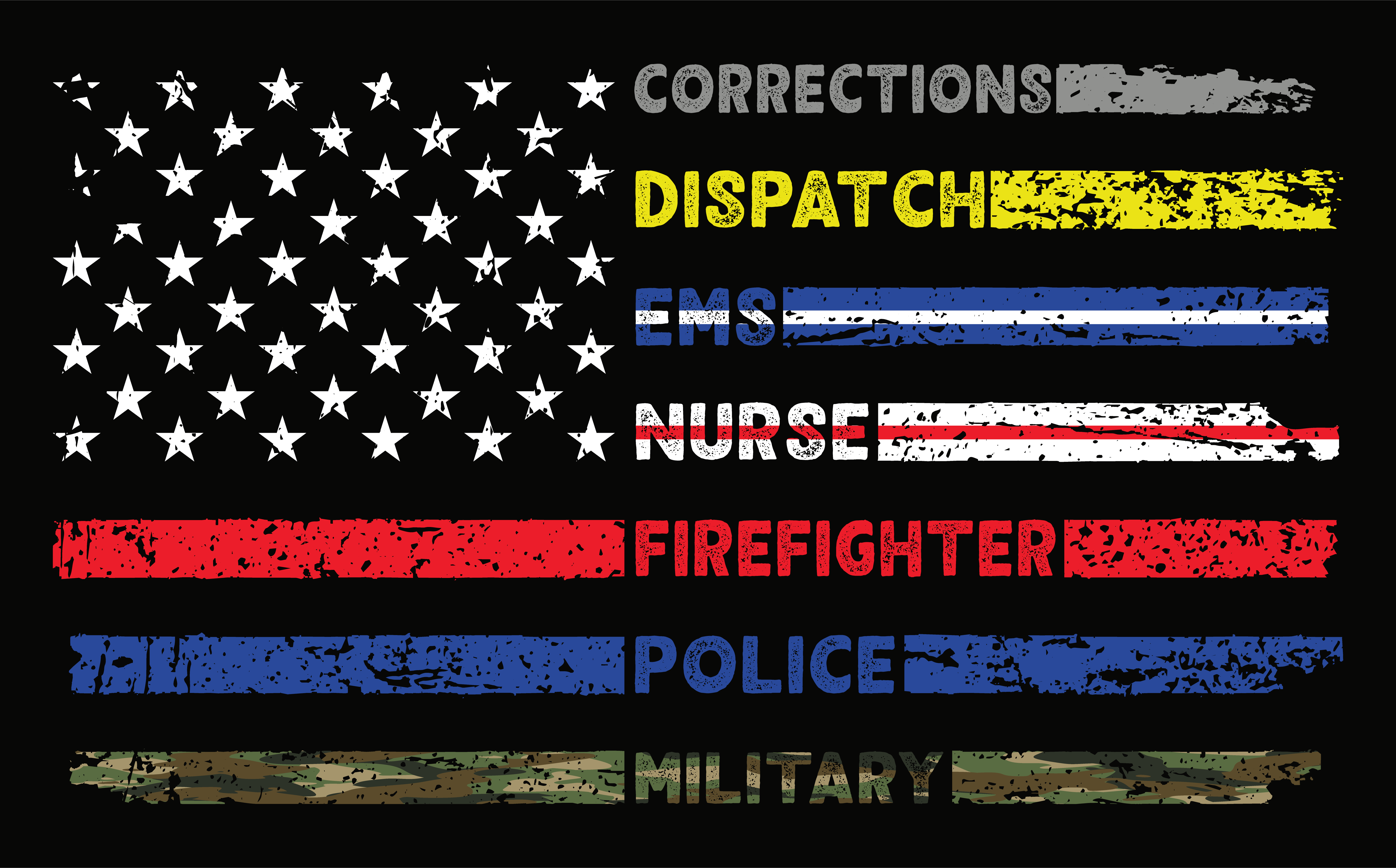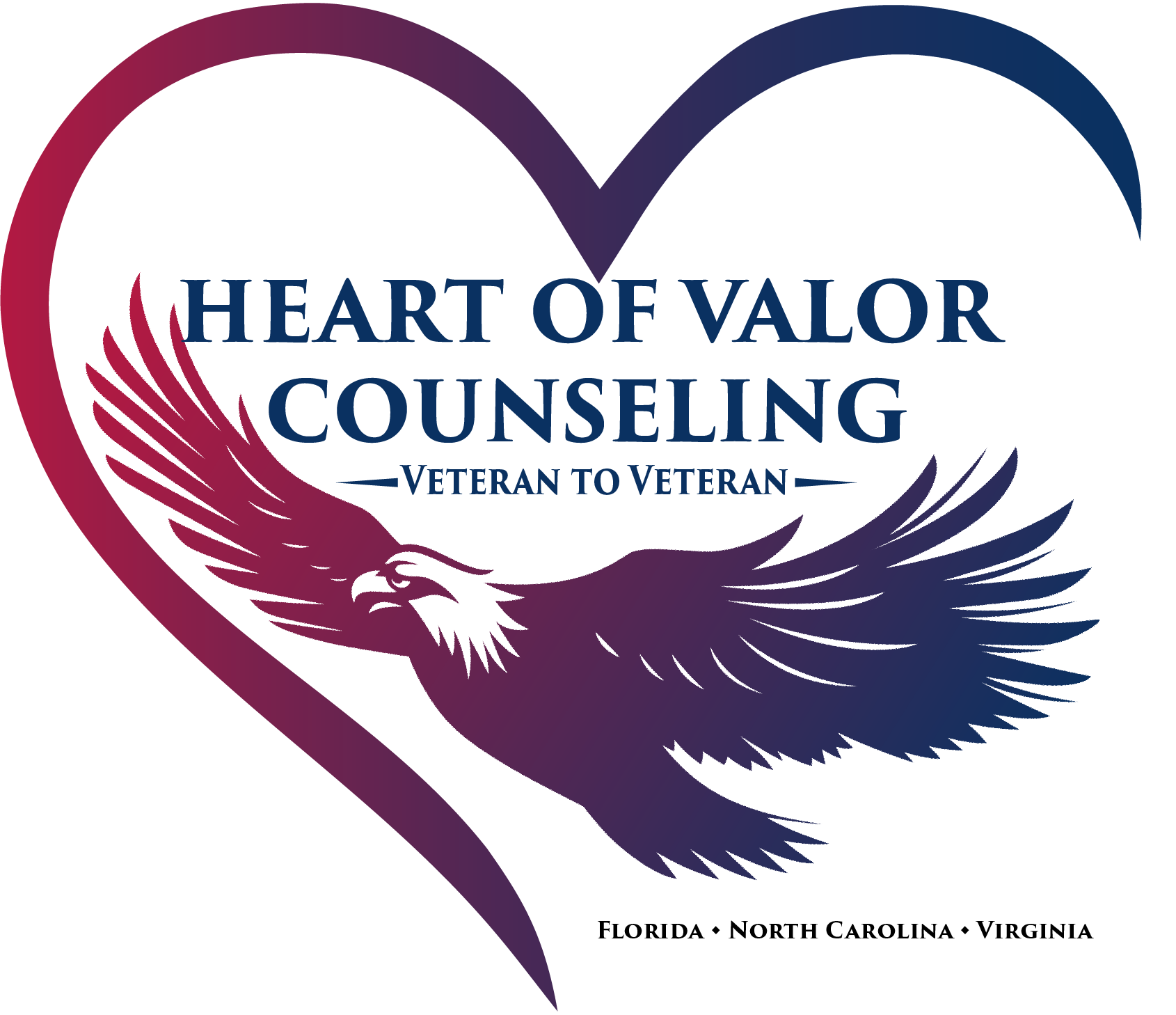![]()
Personalized Support for Our
First Responders
Licensed Mental Health Counselor, FL #MH16207; Licensed Clinical Mental Health Counselor, NC #19374; Licensed Professional Counselor, VA #0701012289
At Heart of Valor Counseling, we are deeply committed to supporting the brave men and women who serve as first responders. Whether you’re a firefighter, police officer, EMT, or another emergency service professional, we understand the immense pressure, stress, and trauma that come with your role. Our founder, John Cothron, brings a wealth of experience with over 20 years in the military and a decade as a mental health counselor. His dedication to those who serve extends to first responders, offering specialized care designed to address your unique challenges.
At Heart of Valor Counseling, we are honored to serve those who dedicate their lives to protecting and helping others. We are here to support you in managing the unique challenges of your profession, helping you build resilience, heal from trauma, and maintain a healthy, balanced life. Whether you’re struggling with stress, trauma, or relationship issues, we’re here to help you find the strength and peace you deserve.


- Tailored Support: Our counseling services are specifically designed with first responders in mind. We recognize the distinct experiences and stressors you face daily, ensuring that our approach is relevant and effective.
- Confidentiality Assurance: We prioritize your privacy and offer a safe space where you can openly discuss your concerns without fear of judgment or professional repercussions.
- Peer-Informed Therapy: Our team includes counselors who have firsthand experience or specialized training in working with first responders, ensuring that you receive care from someone who truly understands the demands of your profession.
- Flexible Scheduling: We offer flexible appointment times to accommodate the unpredictable and demanding schedules of first responders, including evening and weekend options.
- Cumulative Stress: The daily exposure to high-stakes situations and traumatic events can lead to cumulative stress, which, if left unaddressed, may result in burnout, compassion fatigue, or severe anxiety.
- Trauma and PTSD: Many first responders experience trauma on a regular basis, which can lead to Post-Traumatic Stress Disorder (PTSD). Symptoms such as flashbacks, hypervigilance, and emotional numbness can impact both your personal and professional life.
- Substance Abuse: The high-stress environment of first responders can sometimes lead to coping mechanisms such as substance abuse, which can further complicate mental health and overall well-being.
- Family and Relationship Strain: The demands of your job can take a toll on relationships with loved ones, leading to communication breakdowns, increased tension, and difficulty maintaining a healthy work-life balance.
- Accelerated Resolution Therapy (ART): ART is an innovative, evidence-based treatment that helps quickly reduce symptoms of trauma, anxiety, and depression. By using guided eye movements and visualization, ART allows clients to reprocess traumatic memories and reduce their emotional impact.
- Reconsolidation of Traumatic Memories (RTM): is an evidence-based talking therapy that can help people with post-traumatic stress disorder (PTSD) by changing elements of a traumatic memory to make it less threatening. RTM is a cognitive intervention that involves briefly exposing the trauma memory at regular intervals, rather than using cognitive behavioral techniques. The goal is to update long-term memories and reduce PTSD symptoms. RTM has shown promising results in treating PTSD in military veterans. In one study, 90% of participants who underwent RTM experienced a significant decrease in symptom scale ratings, compared to 0% of controls. Treatment results were also stable for up to one year.
- Critical Incident Stress Management (CISM): We offer CISM techniques to help first responders deal with the immediate and long-term effects of critical incidents. This approach is designed to mitigate the impact of traumatic events and support your recovery.
- Family Counseling: Our family counseling services aim to support both you and your loved ones in navigating the challenges of life as a first responder. We focus on improving communication, understanding, and resilience within your family unit.
Post Traumatic Stress
Around 30% of first responders develop behavioral health conditions such as PTSD, compared to 20% in the general population, according to the Substance Abuse and Mental Health Services Administration (SAMHSA).
Suicide Rates
First responders are at a 39% higher risk of suicide than the general public, with firefighters and police officers being particularly vulnerable, as reported by the Ruderman Family Foundation.
Depression Rates
37% of fire and EMS professionals have experienced depression, and nearly 6.6% have reported having attempted suicide, according to a study published in the Journal of Emergency Medical Services (JEMS).
Substance Abuse
25% of emergency responders have reported abusing alcohol, compared to 16% in the general population, according to the National Survey on Drug Use and Health (NSDUH).

